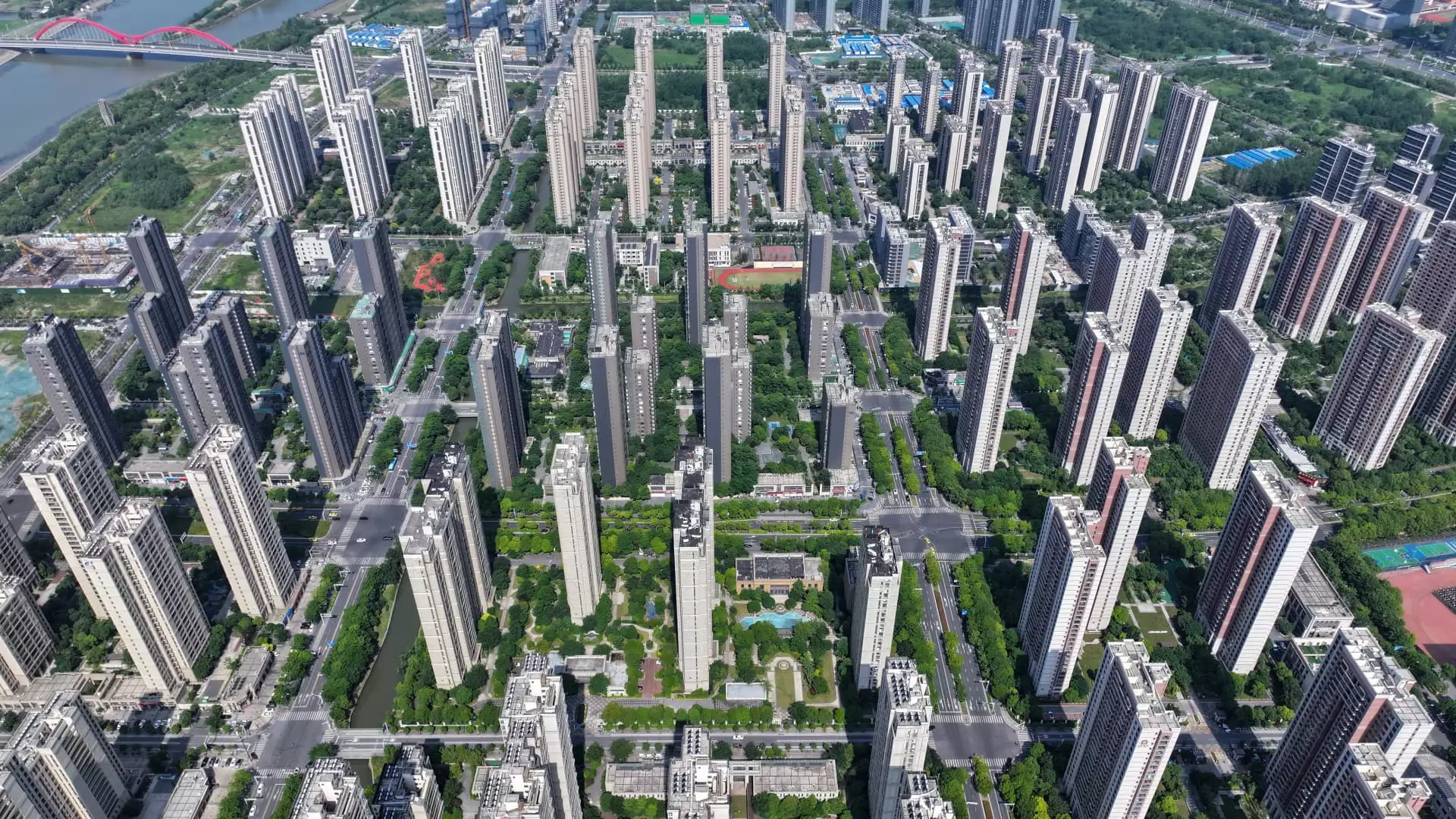The recent uptick in shares of Hong Kong-listed Chinese property stocks has drawn considerable attention, predominantly due to the impact of China’s ongoing economic stimulus measures. Specifically, the Hang Seng Index witnessed a substantial rally, predominantly fueled by the real estate sector, which outperformed other market segments. Leading the pack was Longfor Group Holdings, which experienced an impressive gain of over 25%. Other notable companies like Shimao Group and Kaisa Group observed incredible surges of approximately 87% and 40.48%, respectively. Such meteoric rises indicate an excited market response, but underneath this excitement lies uncertainty about the sustainability of these perceived recoveries.
An Environment of Burgeoning Optimism
The atmosphere of optimism extends beyond just individual stocks. The broader Hang Seng Index experienced a jump of 6%, while the Hang Seng Mainland Properties Index soared over 14%. As the mainland Chinese markets closed for the Golden Week holiday, investor sentiment seemed buoyed by these price movements. Governments in key cities, including Guangzhou, Shanghai, and Shenzhen, unveiled measures aimed at restoring homebuyer confidence. Among these were the removal of home purchase restrictions and relaxed tax requirements, actions that speak to an urgent need to reinvigorate a market that has faced continuous headwinds since the onset of a strict regulatory environment in 2020.
Despite these encouraging developments, the path to a genuine recovery in the real estate sector remains fraught with challenges. Morgan Stanley’s report highlights an ongoing concern: while the recent measures aim to stabilize the market, they may not suffice in addressing the fundamental issues plaguing the sector. The investment bank’s analysts pointed out that the real estate market, which once contributed over 25% to the nation’s GDP, has been grappling with a pronounced decline precipitated by regulatory crackdowns on excessive debt. As a result, many analysts caution that the market still faces a considerable shortfall in demand, which is likely to constrain growth potential significantly.
Looking ahead, while the stimulus measures may provide a temporary lift, the uncertainty surrounding market fundamentals poses a significant risk factor. Historical analysis shows that previous initiatives aimed at propelling the sector have not led to enduring recoveries; rather, they have often resulted in short-lived bursts of optimism followed by renewed concerns over ongoing debt issues and market stability. The commitment from officials to alleviate financial pressures is evident, but restoring consumer confidence and invigorating demand will require more than quick-fix solutions.
While the latest rally in property stocks suggests a glimmer of hope for Hong Kong’s real estate sector, underlying challenges continue to shadow its future. Investors should approach this surge with caution, recognizing that the complexities of China’s property market extend well beyond immediate stock price movements and stimulus announcements. The landscape of real estate demands a more holistic and long-term strategy if it is to reclaim its former significance in the nation’s economic fabric.

